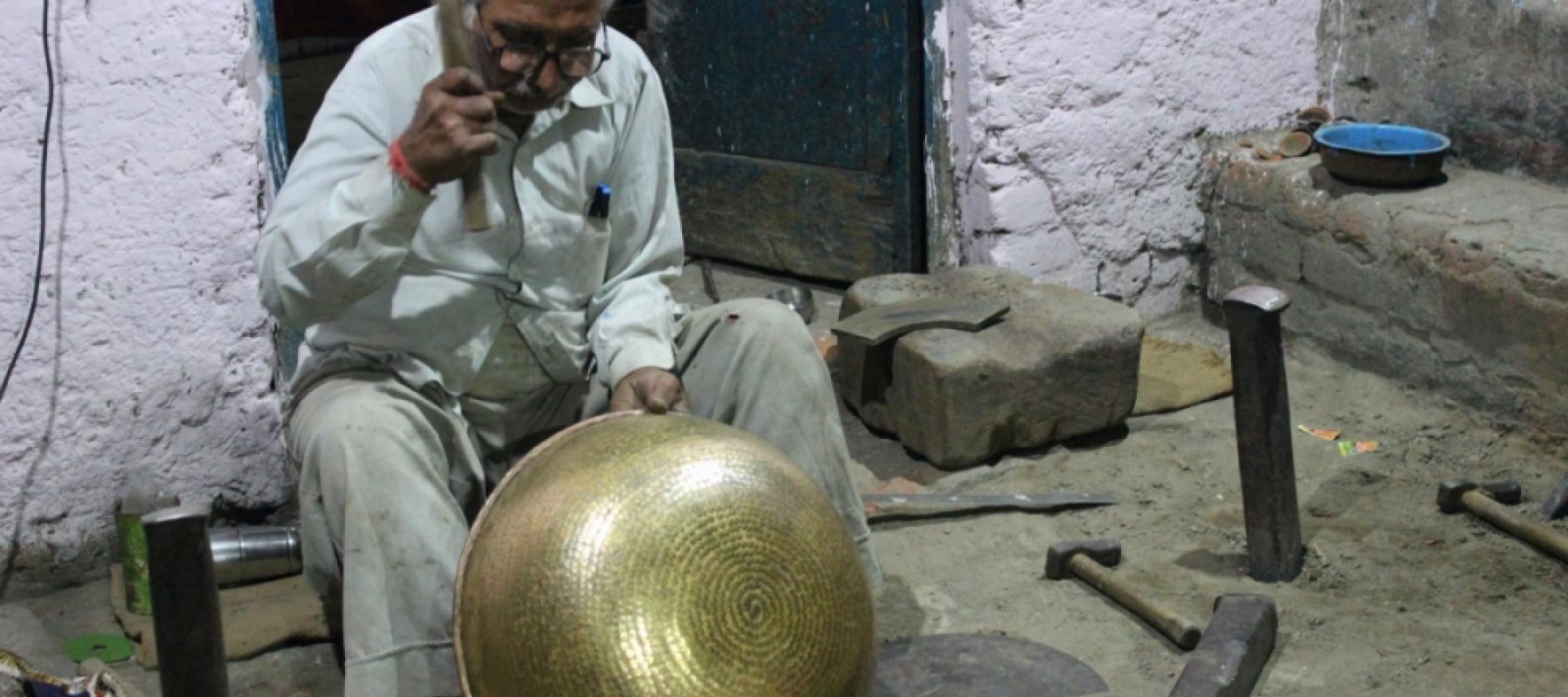The Thatheras of Jandiala Guru specialise in making utensils of copper and brass sheets. It is a dying art form but organizations like Ptal give us hope that it will once again become a significant part of the Indian household and tradition.
For centuries, brass and copper utensils have found place on the shelves of the Indian household. These age-old utensils have played a significant role in the kitchen as well as traditional religious rituals.
Generations of artisans and craftsmen have given unique personalities to sheets of copper (tamba), brass (pittal) and bronze (kansa). The thathiars of Jandiala Guru, Punjab, is one such community that strives to bring this metal back into the modern household which have been invaded by toxic cookware, BPA from plastics and nickel-leaching stainless steel pots, in recent times. Ayurveda, the world’s oldest and in-depth holistic healing school of medicine, recognises these metals as a source of extensive health benefits. UNESCO, too, advocates the use of bronze as the metal is said to improve the nutritive value of food. It is time when communities like the Thatheras can flourish again and bring back the degchis, thalis, surahis and lotas.
The Thatheras of Jandiala Guru have practised their craft for over 150 years. It began with various metalsmith families settling in Jandiala Guru under the reign of Maharaja Ranjit Singh. The ruler understood the immense need of arts and crafts in his empire, and brought in artisans from Kashmir to settle in the heart of Punjab, thus founding the crafts colony.
However, their livelihood was soon threatened by the booming aluminum and steel industry, reduced subsidies for raw materials and imposition of several taxes. This led to a steady decline in demand, and many artisans were forced to put an end to their inherited occupation and find meagre jobs for sustenance.
Now, the community lives dispersed in a few sheds and dingy houses. The ubiquitous ‘thak thak’ noise associated with the metalsmiths’ hammering of metal sheets resonates with the glorious past of Thatherian gali, also known as Kashmiriyan gali, but the poor conditions are difficult to miss. Open drains, small and dingy workshops, smoke from welding and poor ventilation is the reality.
‘Identity is more important than money. I will choose having only one meal a day and keeping my identity intact rather than having a full stomach every day and being just another person in the crowd,’ says Manhoar Lal, a master craftsman at Ptal, an organisation which is determined to rediscover and revive the ancient craft tradition of the Thatheras.
Ptal understands the tendency the artisans have to find comfort in age-old designs, shapes and forms. They strive to gently push their craft to fit into the mould of modernism without losing its essence. The organisation aims at creating aesthetically pleasing pieces and a more diverse range of utility products. They have worked relentlessly with the Thantheras community to venture into the dynamic market space of clocks, water dispensers, planters and cooking utensils. They aim at showcasing the uniqueness of these handcrafted products on both national and international platforms. The journey of revamping crafts for the modern market space needs an extensive course of action and, fortunately, organisations like Ptal have definitely made a start in the right direction.
Image Credits- Yusra Hasan/Sahapedia
To know more about Ptal and their work, log on to their website- https://www.ptal.in/

